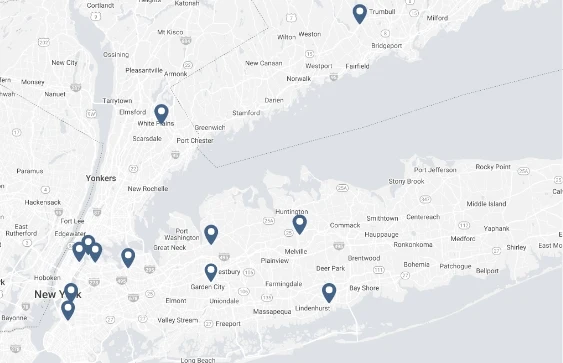Insurance and Billing
ABN (Advanced Beneficiary Notice)
- A notice given to Medicare beneficiaries letting them know what medical services Medicare is not likely to pay for, and is given to patients before the service is performed.
Allowed
- This is an amount established by an insurance company that it will pay. This varies per insurance company and per patient benefit contract.
ATD (Applied to Deductible)
- The portion of the claim that the patient is required to meet before the insurance company pays the claim.
Authorization
- A written consent to release protected health information. Some patients, such as HMO patients may be required to obtain permission or authorization to receive certain services.
Catastrophic Cap
- Catastrophic cap limits the amount of out-of-pocket expenses a patient will have to pay. The cap applies to all covered services. Once the patient meets the catastrophic cap, there are no moreout-of-pocket expenses.
Co-Insurance
- Co-insurance refers to an amount that a patient or insured person is contractually required to pay for medical care, after a deductible has been applied. Co-insurance is often specified by a percentage.
Co-Payment
- Co-payment is a predetermined (flat) fee. This fee is based on a contract between an employer or patient and an insurance company. A co-payment that a patient pays for health care services is in addition as an out-of-pocket expense to what the insurance company covers for the service provided. A co-payment is separate from a deductible and co-insurance.
Deductible
- A deductible is a contractual amount that the patient is required to pay as an out-of-pocket expense before the insurance company pays any claim sent to them. The amount of deductible varies per patient and per insurance policy.
EOB (Explanation of Benefits)
- A written statement to a beneficiary, from a third-party payer, after a claim has been reported, indicating the benefits and charges covered or not covered by the medical benefits plan.
EPO (Exclusive Provider Organization)
- Insurance plan allows access to health care from a network physician, facility or other health care professional, including specialists, without designating a Primary Physician or obtaining a referral- there is no claim forms or bills. Benefits are available for office visits and hospital care, as well as inpatient and outpatient surgery. Does not provide out of network.
HMO (Health Maintenance Organization)
- An HMO is a legal entity that consists of participating medical providers that provide or arrange for care to be furnished to a given population group for a fixed fee per person. HMOs are used as alternatives to traditional indemnity plans as a way to manage costs and keep health care expenses low.
In-Network
- In-network refers to providers or health care facilities that are part of a health plan’s network of providers with which it has negotiated a discount. Insured individuals usually pay less when using an in-network provider, because those networks provide services at lower cost to the insurance companies with which they have contracts.
Non-Participating Provider
- Also known as out of network provider or a non-contracted provider.
Out of Network
- This phrase usually refers to physicians, hospitals or other health care providers who are considered nonparticipants in an insurance plan (usually an HMO or PPO). Depending on an individual’s health insurance plan, expenses incurred by services provided by out-of-plan health professionals may not be covered, or covered only in part by an individual’s insurance company.
Out of Pocket
- The portion of the medical care costs for covered services that are required to be paid by the patient, including co-payments, co-insurance, and deductible.
POS (Point of Service)
- POS plans are similar to PPO plans; however, they require covered persons to select an in-network personal care physician. Under a POS plan, participants can seek care outside of the network and still have coverage. In-network care is covered at higher benefit levels than out-of-network care.
PPO (Preferred Provider Organization)
- A program that establishes contracts with providers. Providers that are contracted with an insurance company are called preferred providers by the insurance company. They are also called “Par” or “In Network” providers.Patients who belong to a PPO health insurance plan can usually seek care outside the network without having to obtain authorization or preapproval.
Workers Compensation
- This is healthcare coverage that is mandated by State law to be provided to an employee in the event of work related injuries and illnesses. Each State has its own laws and regulation on managing workers compensation. Some employers may be exempt from providing workers compensation insurance.
- Garden City
- Babylon
- East Hills
- Huntington
- Manhattan
- Port Jefferson
- Brooklyn
- Flushing
- Westchester
- Connecticut













